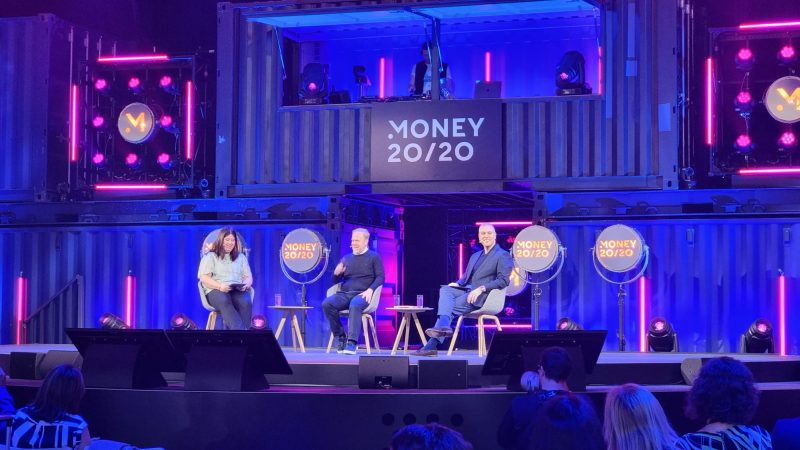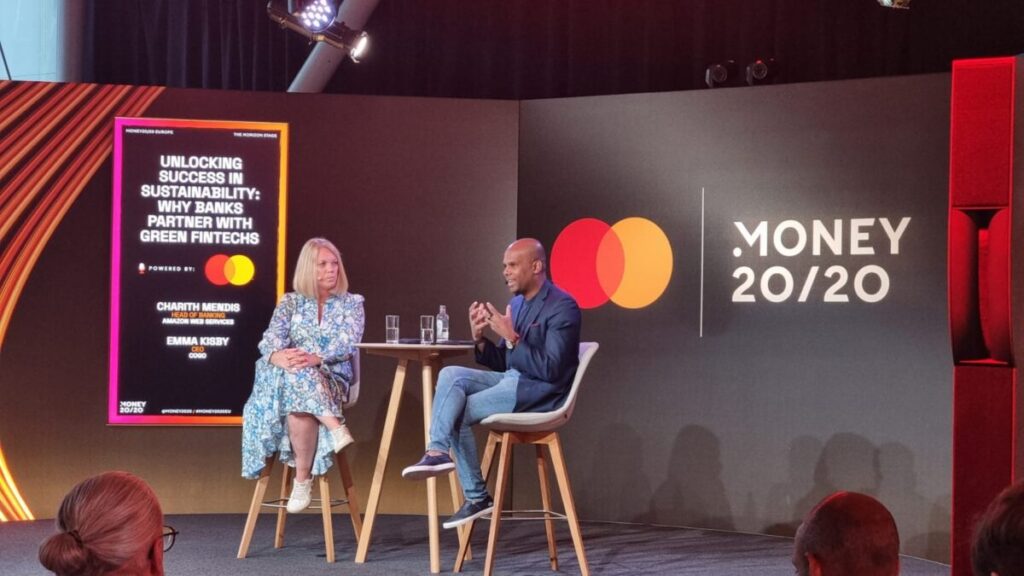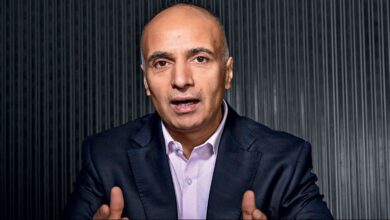Money 20/20 Europe 2024: Day Three in Amsterdam

The final day of Money20/20 Europe 2024 boasted a number of funding-focused discussions, as well as insights into Zing – HSBC’s multi-currency app and debit card.
After sampling the morning’s croissants – no pain au chocolat for day three alas – we headed to the Exchange Stage for a deep dive into the state of cross-border payments with Taylan Turan, CEO, retail banking, HSBC wealth and personal banking and James Allan, CEO, Zing.
Alongside moderator Gina Clarke, the pair discussed the launch of HSBC’s multi-currency app and debit card and the importance of listening to what customers want.
HSBC’s research revealed customers’ desire for a seamless, easy-to-use service that rewards trust and partnerships, despite the challenges of international payments, they said.
Allan commented: “Despite the innovations that are taking place, from fintechs or from high street banks, customers are still finding it difficult to make international payments and understand international payments. So, we looked into this and we thought there’s an opportunity to make this better based on what we’re hearing from customers. This allowed us to craft an offensive play in the international payments, payments market.”

Funding and evolving
We then scampered into a panel moderated by Elizabeth Kleinveld, head of acceleration at Startupbootcamp, as speakers shared their experiences in raising funding during uncertain times as well as the current focus of their companies.
Benjamin Fernandes, founder and CEO of mobile money transfer firm NALA, revealed how he managed to obtain key insights and advice from industry leaders.
“When I started out building NALA, I sent a cold email to Jonas, co-founder and CTO of Monzo. I explained that I’d love to get his advice and 15 minutes of his time and he responded a day or two later, and I got on a call with him. Then I asked him five questions and gained five years of insight from a 30-minute conversation. Now, all of a sudden, I have a relationship with a co-founder of one of the largest banks in Europe.”
Regina Lau, CFO at Weavr, also shared the embedded finance firm’s plans: “Although we are not yet profitable, we have a path towards profitability. And that actually includes making sure that is not only growth of the organisation like Benjamin is mentioning, it’s actually even how many products and services you will launch so we’re constantly refining that. And we actually landed on the fact that we want to be able to deliver an offer SAS ready B2B financial products and that’s really our main focus.”
Tingting Peng, chief capital, strategy and impact officer at mobility fintech Moove, discussed the firm’s funding round strategy: “The smallest round we raised was $23million, and the largest was around $100million. For our stage business and our business model, it makes far more sense to raise bigger quantums. Given the effort we have to put into meeting investors, preparing diligence, and given the capital consumptive nature of our model, we’re constantly consuming debt.”


Unlocking success in sustainability
Emma Kisby, CEO EMEA at Cogo, engaged in a great discussion with Charith Mendis, head of banking at Amazon Web Services (AWS), on the Mastercard-endorsed Horizon Stage about the challenges banks face with customer engagement, personalisation, and effective climate action/reporting.
We heard how banks recognise the importance of helping customers take climate action, but a uniform approach isn’t effective as customers have diverse needs and are at different stages. Significant investments in home energy initiatives haven’t yielded desired results due to the lack of personalised solutions, indicating a need for better data and increased customer engagement.
By collaborating with green fintechs, banks can access advanced technology for personalised carbon insights, enhancing their product offerings. This partnership leverages the expertise and agility of fintechs with the resources and scale of banks, fostering innovation and accelerating meaningful decarbonisation efforts.


Fintech forging East
Later at the Na.i.ture Stage, Suzy Al Zeerah, COO at Bahrain FinTech Bay, and Erkan Kork, chairman of BankPozitif, discussed how the Middle East and Turkey are advancing so quickly.
Al Zeerah offered advice to prospective firms looking to expand: “For anyone looking to scale up to the Middle East, you have to have a multi-country strategy. You’re not going to go to one place and operate out of just that place. Talking about the GCC itself, the market size is around 64 million people. You have to service everyone across the board and the entire region.
“Where you set up is important. If you’re thinking about a proper strategy, you need to think about what the country offers you. As a fintech that’s moving out of MENA, you’re thinking about operation costs. Where are you going to find a country that has subsidies or offerings that can help you with your operational costs? If you’re focused on hiring local talents, which country in the GCC has the talent available, rather than forcing you to bring the talent in from outside.”
Later, Kork explained how 2020 and 2021 were a crucial turning point for the Turkish fintech sector: “I think the pandemic was crucial for the development of the fintech sector in Turkey and the surrounding region. It was the driving force behind the fast-growing fintech, payments and electronic money services.
“Before the pandemic, the banks in Turkey were onboarding customers face to face, where new customers had to come into a branch to sign an agreement. But after the pandemic, banks saw the advancements in the fintech sector, and started onboarding customers digitally.”


After that, there was just enough time for a sausage roll, before we said tot ziens to Amsterdam’s Money20/20 for another year.



